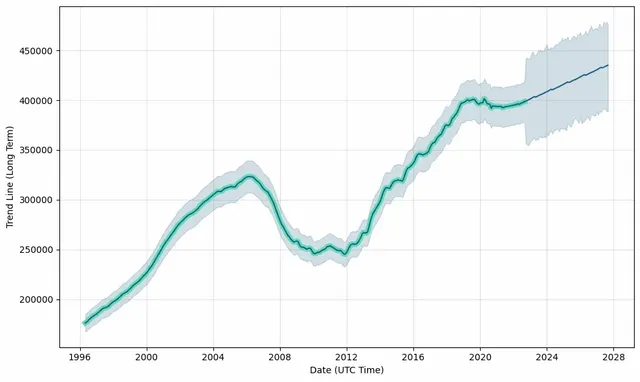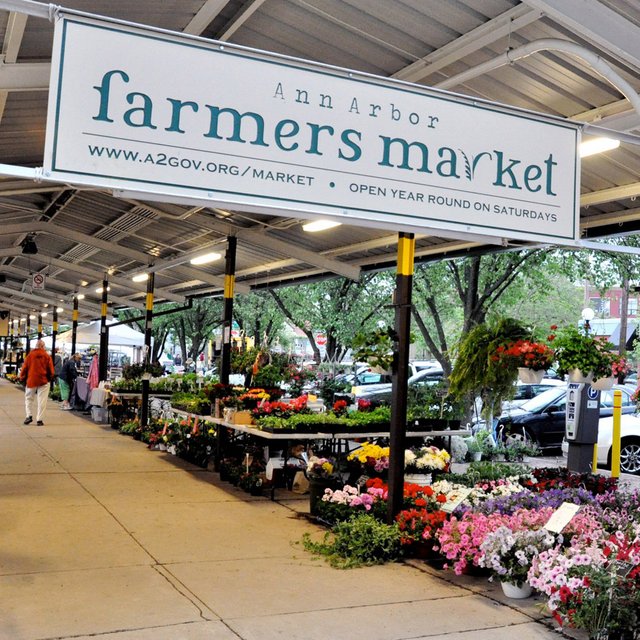Is Ann Arbor Becoming Too Expensive for Students?
Is Ann Arbor Becoming Too Expensive for Students?

Ann Arbor is a vibrant, dynamic place to live; it's even more so as a student at the University of Michigan. From the Diag teeming with activity to the beautiful retreat from academic strain-the Arb-to State Street lined with eclectic eateries and shops, there really is something for everyone. The question, however, that has been asked more and more in my opinion, especially now, is this: Is Ann Arbor becoming too expensive for students?
As a student, I have seen the cost of living in this city skyrocket over the last couple of years. The rent prices shot up, food is getting more expensive, and it feels like every little thing adds up quicker than it used to. Don't get me wrong-Ann Arbor is amazing, but it is starting to get unaffordable for the very people who make up so much of its identity.
The Rising Cost of Rent
The most important factor for a majority of students is rent. According to 2023 data, the average rent in Ann Arbor was at about $1,500 for a one-bedroom apartment and over $2,000 for a two-bedroom apartment. That is a big leap compared to recent years when rent was considerably low. Just to put that into perspective, the average rent in Michigan is closer to $1,000 for a one-bedroom. But why is costs Ann Arbor so high?

One reason is demand: the University of Michigan has about 50,000 students, and a considerable proportion of those live off-campus. With limited housing, with a lot of competition for good locations near campus, landlords can-and do-charge more. For students who are not receiving financial aid, or are paying out-of-state or international tuition, the cost of housing becomes a significant burden.
Food and Basic Necessities
It's not just rent, though. Groceries and dining out also tend to be far more expensive compared with other parts of Michigan. If you are spending $6 on a latte, or $15 on an easy meal to take home, things can add up pretty fast. That can be a huge burden for students trying to save or on tight budgets already.
For example, the Ann Arbor Farmers Market is an excellent venue to shop for local produce and goods, but here too, prices are steep. A pound of tomatoes may cost as much as $4, while in the surrounding towns it is available at $2 or less.

Sure it is local and of high quality, but when you are standing around comparing your grocery bills with your fellow students, you realize that Ann Arbor takes a bigger financial cushion than most any other college town.
Was the Cost Worth It?
Some people think this cost of living is fair. Ann Arbor has an extremely high quality of life and often ranks among the best college towns in America. It's clean, safe, walkable, full of opportunities for work or play. You are not just paying for a place to sleep; you pay to live in a city which gives you much in return.
On the other hand, however, the rising costs are indeed pushing some students further from campus, both in literal and figurative ways. An increasing number of students are forced to move to other areas that are more affordable, like Ypsilanti or Saline, meaning longer commutes and less convenience. Others have to take on multiple jobs just to cover basic expenses, cutting into their study time and overall well-being.
The Bigger Picture: Gentrification?
Some are concerned that Ann Arbor's rising cost of living is a sign of one thing: gentrification. As more and more tech firms start to locate companies within Ann Arbor, along with tech professionals seeking a place to live, demand for higher-end apartments rises. Developers build high-rise apartments targeted at affluent professionals rather than students. As more developers target higher-end apartments, the prices rise across the board. Just look around downtown: all those gorgeous new high-rise apartments are nice to look at, but hardly within the most students' price range.
My Take
I think it's a mix. Ann Arbor is becoming too expensive for many students, and that is a problem. Quality of life here is great but cost lately is trumping benefits especially for us on tight budgets or whose families are trying to support us from afar. This is something the university needs to reach out to the city about-in increasing on-campus housing, offering subsidies in rent, or encouraging developers to build more affordable options.
It's a city easy to love, but if living here continues to get more and more expensive, it might not be one where students can thrive much longer. As the heart of this city, we students deserve to live here without constantly stressing over making ends meet.